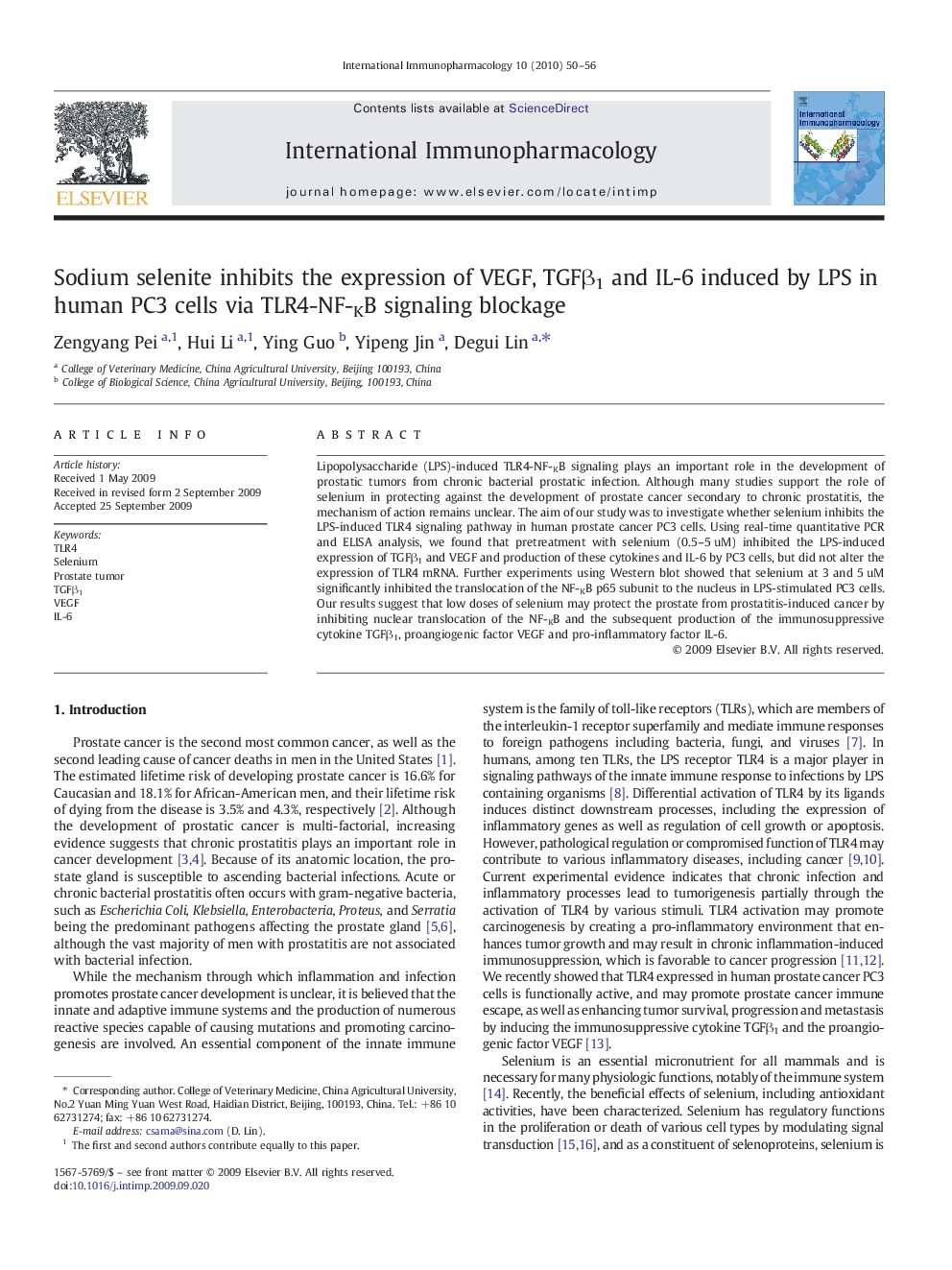| Article ID | Journal | Published Year | Pages | File Type |
|---|---|---|---|---|
| 2541243 | International Immunopharmacology | 2010 | 7 Pages |
Lipopolysaccharide (LPS)-induced TLR4-NF-KB signaling plays an important role in the development of prostatic tumors from chronic bacterial prostatic infection. Although many studies support the role of selenium in protecting against the development of prostate cancer secondary to chronic prostatitis, the mechanism of action remains unclear. The aim of our study was to investigate whether selenium inhibits the LPS-induced TLR4 signaling pathway in human prostate cancer PC3 cells. Using real-time quantitative PCR and ELISA analysis, we found that pretreatment with selenium (0.5–5 uM) inhibited the LPS-induced expression of TGFβ1 and VEGF and production of these cytokines and IL-6 by PC3 cells, but did not alter the expression of TLR4 mRNA. Further experiments using Western blot showed that selenium at 3 and 5 uM significantly inhibited the translocation of the NF-KB p65 subunit to the nucleus in LPS-stimulated PC3 cells. Our results suggest that low doses of selenium may protect the prostate from prostatitis-induced cancer by inhibiting nuclear translocation of the NF-KB and the subsequent production of the immunosuppressive cytokine TGFβ1, proangiogenic factor VEGF and pro-inflammatory factor IL-6.
